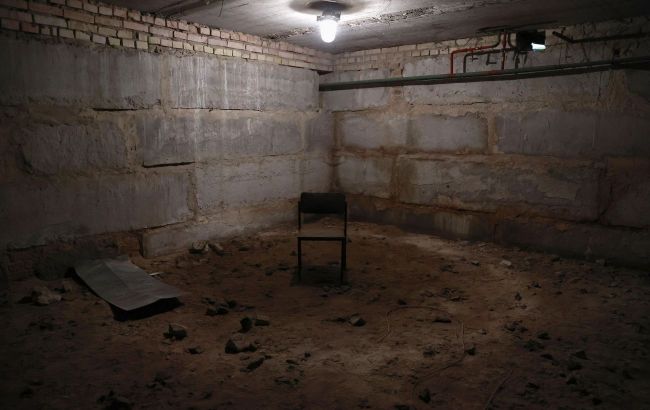UN finds new evidence of torture of Ukrainians in Russia and occupied territories
 UN finds new evidence of torture of Ukrainians by Russians (Getty Images)
UN finds new evidence of torture of Ukrainians by Russians (Getty Images)
An independent international commission investigating human rights violations in Ukraine has uncovered new evidence of widespread torture practices by Russian authorities against Ukrainian civilians and prisoners of war. These acts are being carried out both in Russian-occupied Ukrainian territories and within Russia itself, citing a relevant UN report.
UN commission findings
In its latest update to the Human Rights Council, the Commission stated that the broad geographic scope and the widespread patterns of torture demonstrate that these acts were conducted "as a common and acceptable practice with a sense of impunity."
"The Commission’s further investigation into cases of torture provides evidence that Russian authorities committed torture in the Ukrainian regions where they have taken control of territories. The new evidence reinforces the Commission’s previous finding that torture committed by Russian authorities has been widespread," the report says.
The Commission identified additional common elements in the use of torture by Russian authorities, confirming earlier conclusions about the systematic nature of these actions.
"One element is the consistency of violent practices imposed in detention centres where detainees from Ukraine have been held in the Russian Federation, and the replication of these practices in several large penitentiary centres in occupied areas of Ukraine," the UN says.
Another shared element, emerging from the evidence, points to the coordinated involvement of specific Russian Federation services personnel in the torture across all the detention facilities investigated by the Commission.
"The recurrent use of sexual violence, mainly against male victims, as a form of torture in almost all of these detention centres," the UN reported.
Furthermore, the Commission took into account testimonies from former prisoners regarding prison staff in Russia, indicating that orders for ill-treatment were issued.
Evidence also suggests that in some detention centers, orders for mistreatment were given by senior Russian officials, who either approved or failed to take action to stop the abuse.
Victims' testimonies
A civilian victim, tortured by the Russians for ten consecutive days, told the Commission: "The scariest thing was that the perpetrators were doing everything in silence, and very professionally. I understood they were doing this to many people, and they did not perceive us as human beings."
"These violations have left many of the victims with grave or irreparable physical harm and trauma. Most of them emphasized the deep psychological impact of these experiences for them and their families," the UN stressed.
Some victims reported significant difficulties reintegrating into society and rebuilding relationships with loved ones. They emphasized the need for psychological and social support for both themselves and their families.
The Commission continues to document attacks using explosive weapons on civilian objects in populated areas, leading to devastating consequences. The UN has investigated attacks on healthcare facilities, cultural sites, residential buildings, and supermarkets in Ukraine-controlled areas.
"Pursuing its investigation of Russian Federation’s large-scale waves of attacks on Ukraine’s energy infrastructure — some of which have resulted in power outages affecting millions of civilians — the Commission has found new evidence of the impact of such attacks on the health and well-being of the population," the report concluded.
Torture and executions of Ukrainians by Russians
Cases of torture and execution of Ukrainians by Russian forces are widespread, as Russia continues to violate international law. Prosecutor General Andrii Kostin said that up to 90% of Ukrainian prisoners of war experience physical and psychological torture while in Russian captivity.
Additionally, a recent chilling video surfaced, showing Russian occupiers executing a Ukrainian prisoner of war and publishing the footage.
Ukrainian law enforcement is currently investigating 61 cases of executions of Ukrainian prisoners of war by Russian soldiers.

